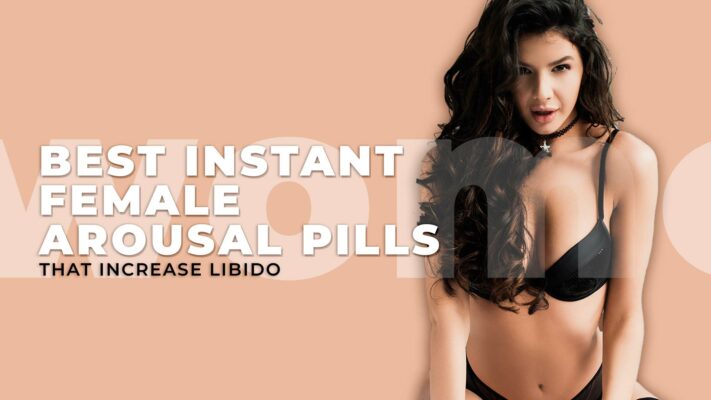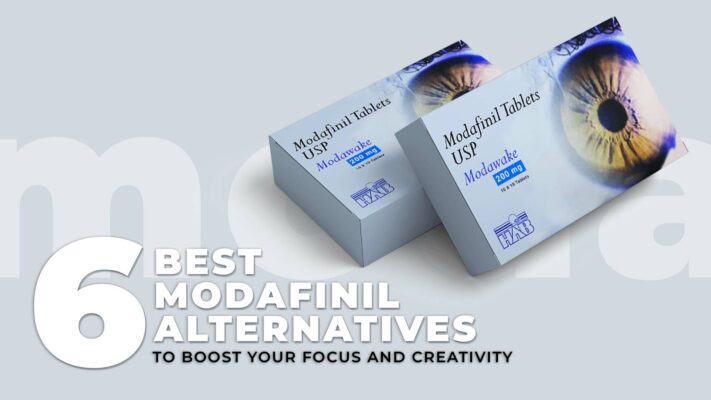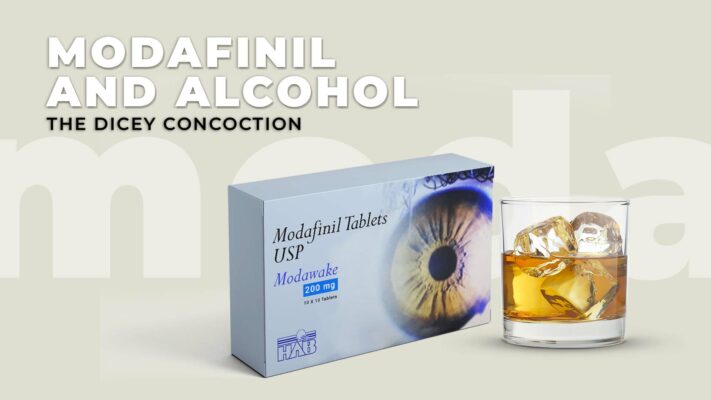Best Female Libido Booster – Enhancement pills for women
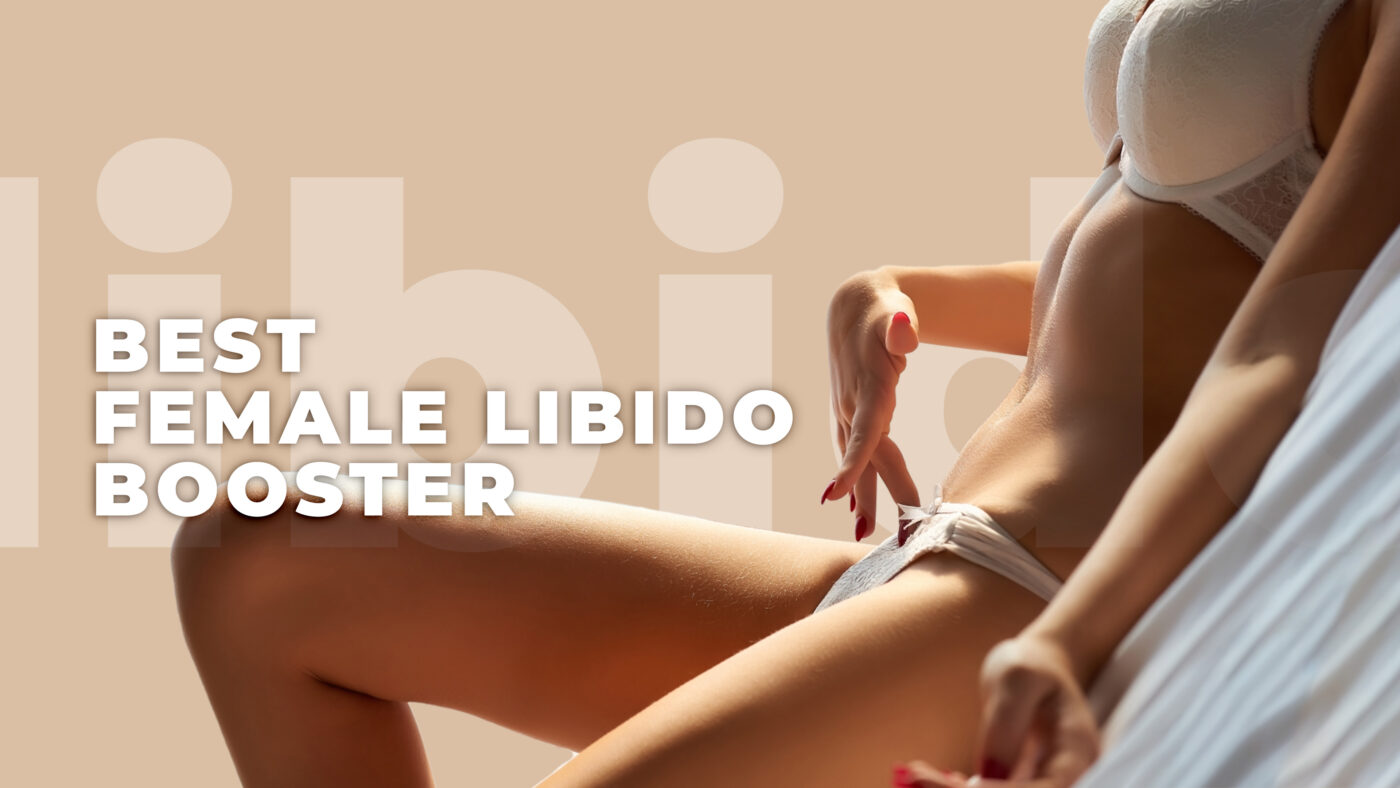
Did you know that 40% of women face sexual dysfunction?[1] A healthy libido is key to a fulfilling and confident life. Low libido can hurt your happiness and intimacy. But don’t worry, there are ways to help.
This article explores ways for female sexual enhancement. You will find useful advice here if you want quick fixes or long-term help. Let’s explore how you can improve your sexual health.
Table of Contents
What is a Female Libido?
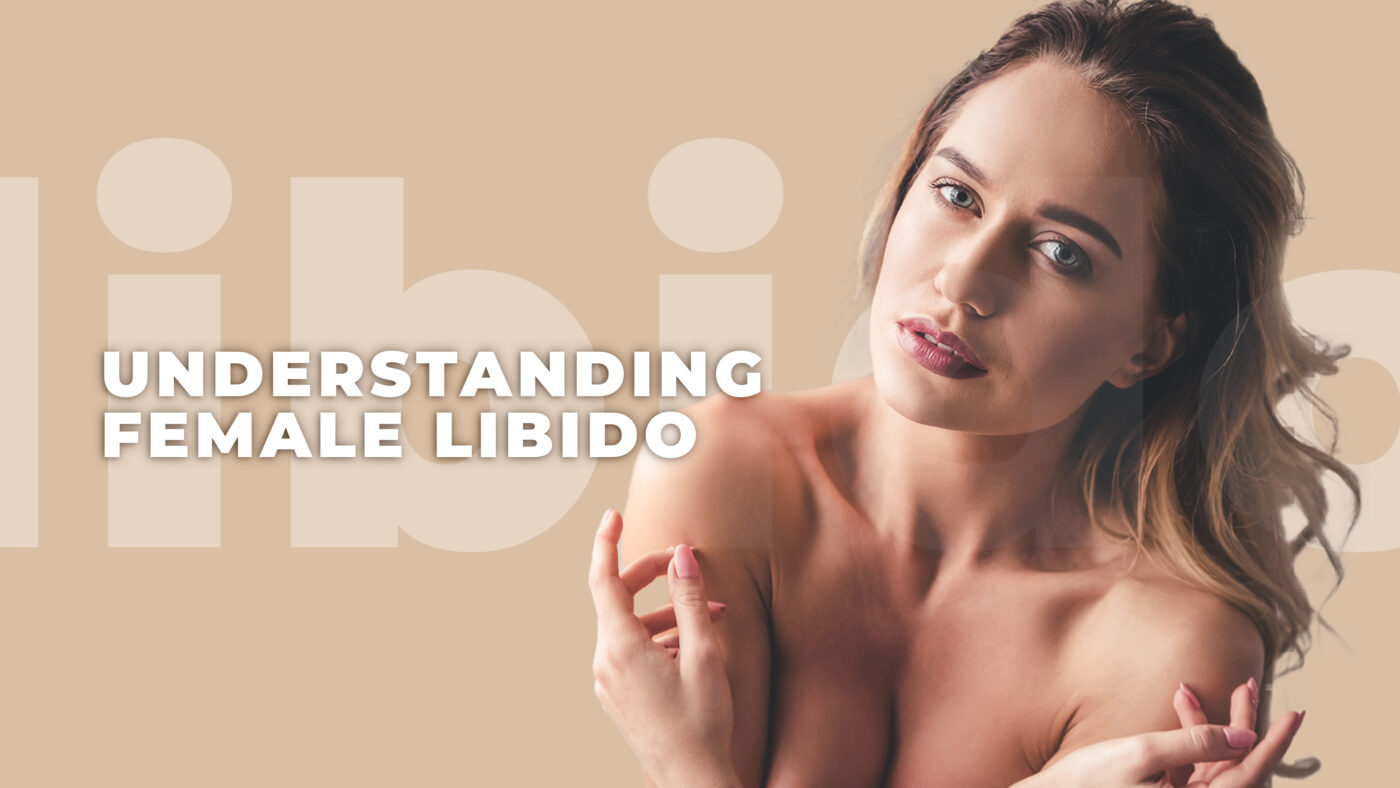
Female libido is another term for sexual desire in women. Female libido, or sexual desire, varies a lot. Many factors can influence it. These include:
- stress
- hormonal changes
- lifestyle.
Low libido means you have less interest in sexual activity. It differs from sexual arousal. Sexual arousal involves your body’s response to being turned on. If low libido sticks around, it can harm your well-being and relationships. Knowing the signs and causes of low libido can help you address it.
If low libido lasts for six months or more, it can become a dysfunction.[2] This issue may cause stress or strain in your relationship. This issue is quite common among women. Medications, health issues, and hormonal changes can lower libido. Knowing these causes is the first step to finding solutions.
Factors Affecting Libido In Women
Hormonal changes throughout your life can impact your libido.[3] Health conditions such as
- mood disorders
- cancer
- sexually transmitted infections
- urinary tract infections
- kidney failure
can also play a role.
Common Causes Of Low Libido In Women
Low libido in women can come from many causes. These often involve physical, emotional, or hormonal changes.[4] Knowing these factors can help you understand why your desire may drop. Treating the following causes can improve your sexual well-being.
- Hormonal changes
Menstrual cycles, postpartum states, lactation, perimenopause, and menopause can affect hormone levels and sexual desire.
- Medical conditions
Conditions like oophorectomy (removal of ovaries), hysterectomy, and other reproductive health issues can lower libido.
- Emotional and psychological factors
Stress, anxiety, depression, and low feelings of emotional or physical satisfaction can decrease sexual desire.
- Medications
Certain medications, especially hormonal contraceptives, antidepressants, or other psychiatric drugs, can reduce libido.
- Relationship issues
Marital or relationship problems, lack of emotional connection, or unresolved conflicts can impact sexual desire.
- Physical health problems
Chronic illnesses, pain during intercourse, or fatigue can contribute to lower libido.
Best Female Libido Booster To Use
In 2024, women have many ways to boost libido. You can choose medical, natural, or OTC products. Medical supplements are prescribed to treat specific health issues. Natural options use herbs and plants to balance your body. OTC products are easy to get without a prescription. Each option offers its benefits, so you can pick what fits your needs best.
Natural Supplements To Increase Female Sensitivity
Many of us like a morning smoothie or herbal tea. This leads us to natural supplements for increasing female libido. These supplements use similar ingredients. They can boost your sexual health. Not all natural libido boosters have strong scientific support. However, some might provide benefits.
DHEA (dehydroepiandrosterone)
DHEA is a hormone produced by your adrenal glands. It turns into estrogen and testosterone in your body. Some studies say that DHEA as a supplement can help women with low libido.[5] But we need more research on this. Women with hormone-sensitive cancers should avoid it.
Red Clover
Red Clover is a wild plant. It can help with menopause symptoms like vaginal dryness.[6] The supplement does not have much effect on sexual desire. It’s safe but can cause headaches or nausea.
Maca Root
Maca root is a plant from Peru. It has a long history of use for enhancing sexual function. It is available in powders and capsules. Some women say it helps with menopause symptoms. They claim that it can help boost libido.[7] We need more research to confirm this.
Vitamin E with Ginseng
Ginseng is used in traditional Asian medicine. It is often mixed with vitamin E to support sexual function. A clinical trial found this mix increased sexual desire in women. However, overall sexual function did not improve much compared to a placebo.[8] Ginseng seems to help menopausal women more than premenopausal women.
Zinc
Zinc is crucial for your immune system and metabolism. It may also improve sexual health. It works by boosting blood flow to the genital area. Some studies suggest that zinc supplements can increase sexual desire. They do so by enhancing vaginal wetness during intercourse.[9]
L-Arginine
L-Arginine is an amino acid. It supports various bodily functions, including circulation. It is found in foods like
- red meat
- poultry
- fish
- dairy products
- legumes.
It is also available as a supplement. Studies show that these supplements can improve sexual satisfaction. They do so by reducing vaginal dryness. They can also increase sexual desire and the frequency of orgasms.[10]
Kanna
Kanna is a plant from South Africa known for improving mood. It might boost libido by affecting serotonin levels.[11] It is safe but can cause headaches or anxiety.
Tribulus Terrestris
This herb from India is used as a sexual stimulant. Some studies[12] say it can help with low libido. However, the results are mixed. It may cause abdominal pain and nausea.
Betel Nut
Betel nuts can enhance libido by releasing dopamine. But it can be addictive and may cause insomnia and anxiety.[11]
Aphrodisiac Foods for Women
Eating certain foods has been linked to increased libido for centuries. For instance,
- dark chocolate
- strawberries
- raw oysters
- coffee
- honey
are believed to enhance sexual desire. [12] Eating a balanced diet is important for overall health. These foods might not be suitable for everyone.
Choose natural libido boosters with care. Consult your healthcare provider first. They will help you determine if these foods and supplements are safe and right for you.
Over-the-Counter Products
You can find various over-the-counter female pleasure enhancers online. These include:
- Provestra
It is a dietary supplement for menopausal and postmenopausal women.
- Zestra
It is a plant-based massage oil. You apply it to the clitoris, labia, and vagina.
- Vigorelle
It is a cream for the genitals. It acts as a lubricant and may boost libido.
- Avlimil
Avlimil is a herbal supplement blend. It has estrogen-like effects on your body and might boost your sex drive.
- HerSolution Gel
It is an arousal gel for vaginal dryness. It enhances libido and sensation.
- HerSolution Pills
These pills help restore natural vigor and desire.
- Instant Female Arousal Drops
These drops can boost sexual desire and sensitivity. They are convenient for immediate results.
- Scream Cream
It is a prescription cream for the clitoris. It increases blood flow and oxygen, enhancing pleasure.
- Lady Era
Lady Era contains sildenafil. It improves sex drive, orgasm, and vaginal lubrication.
Medical Libido Boosters
After exploring natural ways, you may wonder about medical products that increase female sensitivity. These options can provide stronger solutions. Here are some medical approaches that might help:
Hormonal Therapy
Hormonal imbalances can lower your libido. In women, the link between hormones and sexual function is complex. Studies on this topic are limited. This is due to the lack of precise hormone tests. It is also because we don’t have reliable tools to measure sexual function in women.
Hormonal therapy should be tailored to fit your specific needs. It is not the same for everyone. Your doctor should explain both the risks and benefits. If you start hormone therapy, you will need regular follow-ups. These check-ups help catch any side effects early and see how well the treatment works.
Hormones affect your sexual desire in many ways. While hormonal therapies may help, they aren’t the answer for every woman. Working with a doctor lets you explore your options. Two common therapies are Prasterone (Intrarosa) and Ospemifene (Osphena) therapy. Each works in different ways to help with low sexual desire.
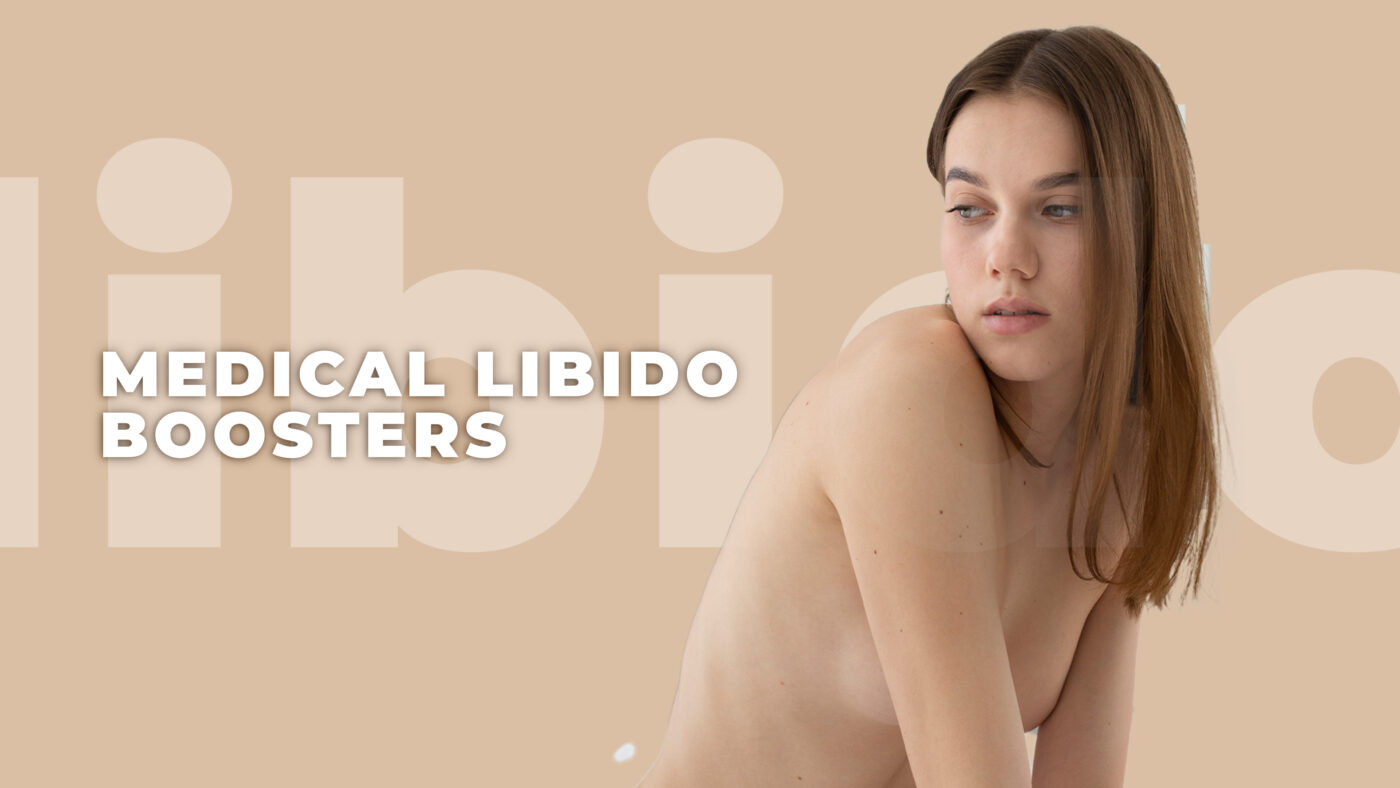
- Prasterone (Intrarosa) Therapy
Prasterone (Intrarosa) is a hormone therapy that helps improve low libido in women. It delivers DHEA, a hormone that turns into androgens inside your body. These androgens play a key role in boosting sexual desire and overall sexual function.
If you experience vaginal dryness or pain during sex, Prasterone can help. It can increase natural lubrication, making intercourse more comfortable. Studies show that women using Prasterone report feeling more aroused and satisfied.[14] You may also find that it helps with orgasm, making your sexual experiences more fulfilling.
Prasterone treatment has proven to improve many aspects of sexual health. This includes higher desire, better arousal, and reduced pain during intercourse. For many women, these improvements can lead to a more enjoyable sexual relationship.
With regular use, Prasterone can help you feel more comfortable and confident in your sexual life. It’s especially helpful for postmenopausal women dealing with vulvovaginal atrophy. By directly targeting the vaginal area, it enhances sexual function without affecting overall hormone levels. This makes it a targeted solution that fits into your routine.
- Ospemifene (Osphena) Therapy
Ospemifene (Osphena) is a non-estrogen therapy that helps women with sexual dysfunction due to menopause. It is often prescribed to treat painful sex caused by vulvar and vaginal atrophy (VVA). Pain during sex can lower your sexual desire and affect overall satisfaction. Ospemifene works by targeting specific estrogen receptors in your body, improving vaginal health without the use of estrogen.
In clinical studies[15], women who took Ospemifene reported improvements in several areas of sexual function. These include better arousal, desire, orgasm, lubrication, and reduced pain during sex. Improvements were noticed as early as four weeks, with continued progress over 12 weeks. This leads to a more comfortable and enjoyable sexual experience.
Unlike some treatments, Ospemifene doesn’t significantly change your hormone levels. Instead, it helps ease the symptoms of menopause that affect your sexual health. It’s a targeted solution designed to address both physical and emotional aspects of female sexual function. With Ospemifene, you can experience greater comfort and satisfaction in intimate moments, improving your overall quality of life.
Prescription Medications
There are only two medications designed to treat low libido in women. These include:
- Addyi (flibanserin)
Addyi started as an antidepressant. You can take Addyi orally every day at bedtime. It enhances sexual desire in premenopausal women.[16]
- Vyleesi (bremelanotide)
This is an injection. You take this injection at least 45 minutes before sex. It helps boost sexual desire. It is another FDA-approved option for premenopausal women.[17]
Medical libido boosters can be crucial for improving sexual health. Always consult a doctor to find the best solution for your needs.
How Long Does It Take For Libido Pills To Work?
The time it takes for women’s Viagra or female libido pills to work can differ for each product and person. Some supplements may claim to work within hours. Others may need days or weeks of regular use. However, the scientific backing for most of these products is weak. Results can vary and may be influenced by the placebo effect.
It’s often more effective to address underlying issues like stress or health problems. Relationship factors can also play a role in low libido. Consulting a doctor before taking supplements is wise. Supplements may interact with medications or cause side effects. There is no instant fix for libido issues.
A holistic approach involving lifestyle changes and medical advice works best. Communicating with your partner can help too. If you’re concerned about your libido, talk to a healthcare provider. They can help you find the root cause and suggest evidence-based treatments.
Comparing Natural and Medical Libido Boosters
Here’s a comparison to help you decide which might be best for you:
| Aspect | Natural Libido Boosters | Medical Libido Boosters |
| Examples | Maca Root, DHEA, Betel Nut, Vitamin E with Ginseng | Hormonal Therapy, Prescription Medications, Arousal Drops |
| Source | Derived from plants, herbs, and natural supplements | Synthetic, prescription-based, hormone therapies |
| Availability | Over-the-counter, available online or in stores | Synthetic, prescription-based hormone therapies |
| Scientific Backing | Limited, varies by ingredient | Extensive, FDA-approved options available |
| Usage | Dietary supplements, teas | Pills, injections, vaginal inserts, hormonal patches |
| Benefits | Often fewer side effects, holistic approach | Potent, specific action on libido and sexual function |
| Side Effects | Mild (e.g., nausea, headaches) | Can be significant (e.g., hormonal imbalance, nausea) |
| Effectiveness | Varies, anecdotal evidence | Generally more effective, clinically tested |
| Considerations | Best for mild libido issues, lifestyle enhancement | Best for significant libido issues, medical conditions |
Always consult a doctor. They will help you find the best approach for your needs.
Other Tips for Enhancing Female Libido
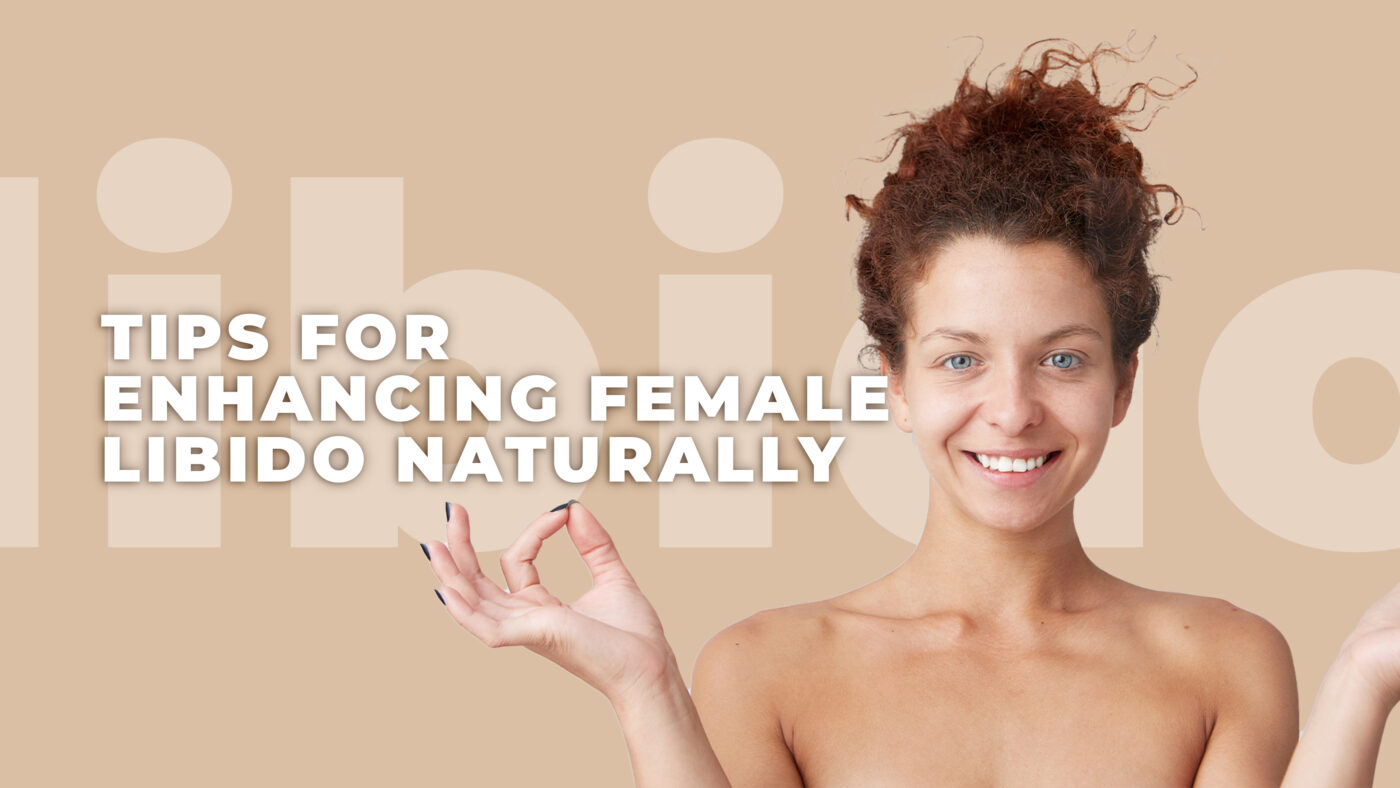
- Manage Stress
Stress can hurt libido. Yoga, exercise, massage, mindfulness, and nature can help. If managing stress is hard, talk to a psychologist.[18]
- Sensate Focus Exercises
These exercises involve touching to build trust and intimacy. They help you relax and connect, improving your libido.[19]
- Get More Sleep
Lack of sleep can lower sexual response. Aim for a regular sleep schedule and a comfortable sleep environment. Talk to your doctor if you have sleep problems.[20]
- Healthy Lifestyle Choices
Making healthy lifestyle choices can also enhance your libido:
- Nutrition
Eat a balanced diet of fruits, vegetables, whole grains, and lean proteins.
- Hydration
Drink plenty of water to stay hydrated.
- Limit Alcohol and Avoid Tobacco
Both can negatively affect sexual function.
- Regular Physical Activity
This keeps your body healthy and boosts your mood.
- Communicate with Your Partner
Talk about your needs and desires to improve your sexual relationship. Share your feelings and explore new ways to connect.
Seek Professional Guidance
If natural methods don’t work, seek help from a healthcare provider. They can find the underlying issues and recommend treatments.
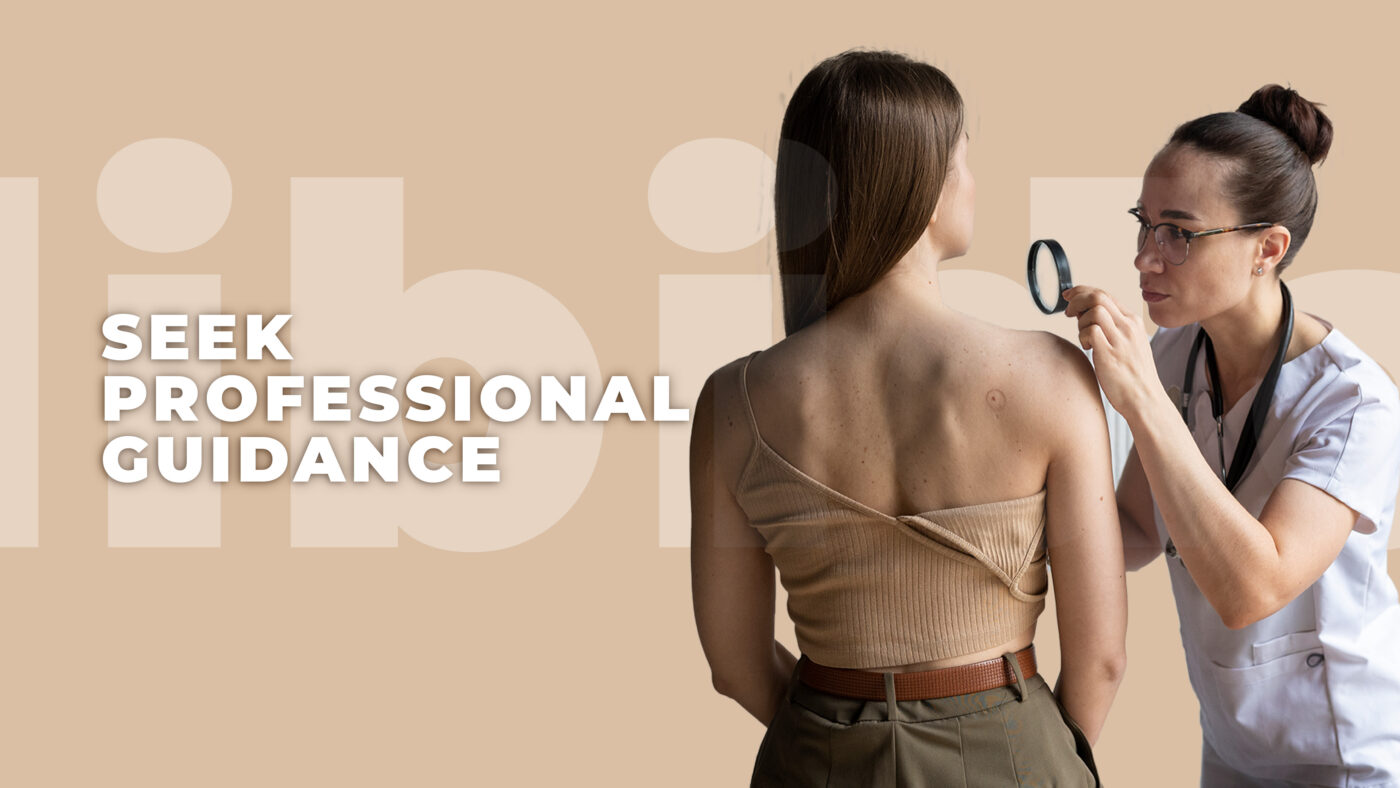
Conclusion
Boosting female libido is key to a happy and confident life. Both natural and medical methods offer benefits. Combine these with tips like stress management, good sleep, and healthy habits. Talk openly with your partner. Seek professional help to address any issues. Prioritize your sexual health. This way, you can enjoy a more satisfying and intimate life.
Frequently Asked Questions
References
- Prescott, H. and Khan, I. (2020) ‘Medicinal plants/herbal supplements as female aphrodisiacs: Does any evidence exist to support their inclusion or potential in the treatment of FSD?’, Journal of Ethnopharmacology, 251, p. 112464. doi:10.1016/j.jep.2019.112464. https://doi.org/10.1016/j.jep.2019.112464
- Goldstein, I. et al. (2017) ‘Hypoactive sexual desire disorder’, Mayo Clinic Proceedings, 92(1), pp. 114–128. doi:10.1016/j.mayocp.2016.09.018. https://doi.org/10.1016/j.mayocp.2016.09.018
- Ahmed, A., Houda, A., Mohamed, E. H. (2017). Role of hormones in hypoactive sexual desire disorder and current treatment. Journal of the Turkish-German Gynecological Association, 18(4), 210-218. doi:10.4274/jtgga.2017.0071. https://jtgga.org/articles/doi/jtgga.2017.0071
- Warnock, J.‘.K. Female Hypoactive Sexual Desire Disorder. Mol Diag Ther 16, 745–753 (2002). https://doi.org/10.2165/00023210-200216110-00003
- Rabijewski, M. et al. (2020) Supplementation of dehydroepiandrosterone (DHEA) in pre- and postmenopausal women – position statement of expert panel of Polish menopause and Andropause Society, Ginekologia Polska. Available at: https://journals.viamedica.pl/ginekologia_polska/article/view/67815
- Ghazanfarpour, M., Sadeghi, R., Roudsari, R. L., Khorsand, I., Khadivzadeh, T., & Muoio, B. (2015). Red clover for treatment of hot flashes and menopausal symptoms: A systematic review and meta-analysis. Journal of Obstetrics and Gynaecology, 36(3), 301–311. https://doi.org/10.3109/01443615.2015.1049249
- Beharry, S. and Heinrich, M. (2018) ‘Is the hype around the reproductive health claims of maca (Lepidium Meyenii Walp.) justified?’, Journal of Ethnopharmacology, 211, pp. 126–170. doi:10.1016/j.jep.2017.08.003. https://doi.org/10.1016/j.jep.2017.08.003
- Ghamari, K., Kashani, L., Jafarinia, M., Tadayon Najafabadi, B., Shokraee, kamyar, Esalatmanesh, S., & Akhondzadeh, S. (2020). Vitamin E and ginseng supplementation to enhance female sexual function: a randomized, double-blind, placebo-controlled, clinical trial. Women & Health, 60(10), 1164–1173. https://doi.org/10.1080/03630242.2020.1803465
- Mazaheri Nia, L., Iravani, M., Abedi, P., & Cheraghian, B. (2021). Effect of Zinc on Testosterone Levels and Sexual Function of Postmenopausal Women: A Randomized Controlled Trial. Journal of Sex & Marital Therapy, 47(8), 804–813. https://doi.org/10.1080/0092623X.2021.1957732
- Dording, C. M., & Sangermano, L. (2018). Female Sexual Dysfunction: Natural and Complementary Treatments. Focus, 16(1), 19–23. https://doi.org/10.1176/appi.focus.20170049
- Brunetti, P. et al. (2020) ‘Pharmacology of herbal sexual enhancers: A review of psychiatric and neurological adverse effects’, Pharmaceuticals, 13(10), p. 309. doi:10.3390/ph13100309. https://doi.org/10.3390/ph13100309
- Akhtari, E., Raisi, F., Keshavarz, M. et al. Tribulus terrestris for treatment of sexual dysfunction in women: randomized double-blind placebo – controlled study. DARU J Pharm Sci 22, 40 (2014). https://doi.org/10.1186/2008-2231-22-40
- Susan R. Davis, André T. Guay, Jan L. Shifren, Norman A. Mazer, Endocrine Aspects of Female Sexual Dysfunction, The Journal of Sexual Medicine, Volume 1, Issue 1, July 2004, Pages 82–86, https://doi.org/10.1111/j.1743-6109.2004.10112.x
- Fernand Labrie, Leonard Derogatis, David F. Archer, William Koltun, Andrée Vachon, Douglas Young, Louise Frenette, David Portman, Marlene Montesino, Isabelle Côté, Julie Parent, Lyne Lavoie, Adam Beauregard, Céline Martel, Mario Vaillancourt, John Balser, Érick Moyneur, Members of the VVA Prasterone Research Group, Effect of Intravaginal Prasterone on Sexual Dysfunction in Postmenopausal Women with Vulvovaginal Atrophy, The Journal of Sexual Medicine, Volume 12, Issue 12, December 2015, Pages 2401–2412, https://doi.org/10.1111/jsm.13045
- Constantine, G., Graham, S., Portman, D. J., Rosen, R. C., & Kingsberg, S. A. (2014). Female sexual function improved with ospemifene in postmenopausal women with vulvar and vaginal atrophy: results of a randomized, placebo-controlled trial. Climacteric, 18(2), 226–232. https://doi.org/10.3109/13697137.2014.954996
- English C, Muhleisen A, Rey JA. Flibanserin (Addyi): The First FDA-Approved Treatment for Female Sexual Interest/Arousal Disorder in Premenopausal Women. P T. 2017 Apr;42(4):237-241. PMID: 28381915; PMCID: PMC5358680. https://www.ncbi.nlm.nih.gov/pmc/articles/PMC5358680/
- Simon JA, Kingsberg SA, Portman D, Williams LA, Krop J, Jordan R, Lucas J, Clayton AH. Long-Term Safety and Efficacy of Bremelanotide for Hypoactive Sexual Desire Disorder. Obstet Gynecol. 2019 Nov;134(5):909-917. doi: 10.1097/AOG.0000000000003514. PMID: 31599847; PMCID: PMC6819023. https://www.ncbi.nlm.nih.gov/pmc/articles/PMC6819023/
- Mollaioli, D., Ciocca, G., Limoncin, E. et al. Lifestyles and sexuality in men and women: the gender perspective in sexual medicine. Reprod Biol Endocrinol 18, 10 (2020). https://doi.org/10.1186/s12958-019-0557-9
- Mestre-Bach, Gemma, Gretchen R. Blycker, and Marc N. Potenza. 2022. “Behavioral Therapies for Treating Female Sexual Dysfunctions: A State-of-the-Art Review” Journal of Clinical Medicine 11, no. 10: 2794. https://doi.org/10.3390/jcm11102794
- David A. Kalmbach, J. Todd Arnedt, Vivek Pillai, Jeffrey A. Ciesla, The Impact of Sleep on Female Sexual Response and Behavior: A Pilot Study, The Journal of Sexual Medicine, Volume 12, Issue 5, May 2015, Pages 1221–1232, https://doi.org/10.1111/jsm.12858
Disclaimer
HisBlue is not a substitute for professional medical care or advice from your doctor. The health information on the HisBlue website is general and provided for your information only. We have ensured our content is accurate and current, with reviews by expert doctors. However, we cannot guarantee its accuracy or timeliness. This information is not meant to replace the diagnosis, treatment, or judgement of your doctor or another qualified healthcare provider.


